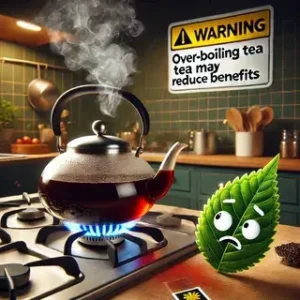Coffee is not simply a drink; it’s a worldwide culture and morning habit as well as an object of argument without end. Thanks to its diverse making techniques and many health advantages, coffee grounds have become an integral part of everyday existence globally. This handbook covers everything one should learn about coffee starting from its emergence period up to nowadays irrespective of being an occasional consumer or passionate taster.
1. What Is Coffee?
Although coffee is probably the most widely consumed beverage manufactured by mankind, it is a brewed beverage derived from the seeds of the berries of the coffee plant. The beverage coffee has caffeine; indeed, it keeps us awake during night work or reading. In the entire world, there are only two major species of coffee plants, namely Arabica and Robusta species.
- Arabica: Arabica is Known for its smooth taste and aromatic qualities.
- Robusta: Robusta is Known for its higher caffeine content and bold flavor.
| Coffee Type | Characteristics | Caffeine Content |
|---|---|---|
| Arabica | Smooth, mild, sweet, | Moderate |
| Robusta | Strong, bitter, bold, | High |
2. History of Coffee
Coffee has a rich history that spans the centuries, with its source traced back to ancient coffee forests in Ethiopia. Folklore has it that coffee was discovered by a goat herder named Kaldi who found his goats behaving strangely after eating berries from particular trees.
It was on the Arabian Peninsula where coffee found its way into mainstream culture, especially as a drink amongst Muslims (Islamic world). During the 17th century, there was an explosion of coffee houses in Europe that became popular joints for socialization purposes Today, it is also drunk everywhere around the world but served differently.
3. Different Types of Coffee Beans
Understanding the different types of coffee beans is essential for anyone who wants to enjoy or explore the world of coffee. There are two most common coffee beans, Arabica and Robusta, which differ significantly in texture, flavor, and caffeine levels.
The Differences between Arabica vs. Robusta:
- ArabicaThe complex flavors and less bitterness that often characterize Arabica beans arguably make them better than Robusta beans. They incline towards a sweet taste that occasionally comes with fruity undertones.
- Robusta By contrast, Robusta beans are more bitter, stronger, and have a high amount of caffeine. It is for this reason that most people find it suitable for use in espresso blends as it produces a thick crema on top
| Bean Type | Flavor Profile | Best Used In |
|---|---|---|
| Arabica | Sweet, mild, fruity | Drip coffee, pour-over |
| Robusta | Bold, earthy, bitter | Espresso, instant coffee |
4. Popular Coffee Brewing Methods
Brewing coffee is an art form, and the method you choose greatly influences the flavor, texture, and strength of the coffee. These are some popular brewing methods:
1. Espresso
Espresso is coffee that is brewed by forcing hot water through finely ground coffee beans. It forms the basis of many modern coffee drinks including lattes, cappuccinos, and Americanos.
2. French Press
The method entails soaking large-sized coffee granules in hot water and then using a plunger to press them. An espresso obtained through this procedure is full of robust aroma.
3. Pour-Over
This method involves pouring hot water over coffee grounds in a filter. The water goes through the coffee and filter, dripping into a cup or carafe. It’s famous for producing clear and bright-tasting coffee.
4. Cold Brew
Cold brewing is a method that involves soaking large coffee pellets in cold water for long durations (typically 12 – 24 hours) ultimately resulting in a less acidic and smoother coffee drink that can be served either hot or cold.
| Brewing Method | Flavor Profile | Preparation Time |
|---|---|---|
| Espresso | Strong, concentrated | 1–2 minutes |
| French Press | Full-bodied, robust | 5–8 minutes |
| Pour-Over | Clean, light-bodied | 3–5 minutes |
| Cold Brew | Smooth, low-acid | 12–24 hours |
5. Health Benefits of Coffee
Although coffee is widely recognized for its energizing properties, moderate use of the beverage could provide some health advantages. Here are a few major health advantages:
1. Rich in Antioxidants
One of the main foods in the current diet that contains a lot of antioxidants that can assist the body fight oxidative stress is coffee.
2. Boosts Physical Performance
Coffee is a common pre-workout beverage because it contains caffeine, which stimulates the nervous system and raises adrenaline levels.
3. May Lower the Risk of Certain Diseases
Regular coffee drinkers have been associated with a decreased risk of Alzheimer’s, Parkinson’s, and type 2 diabetes.
4. Supports Mental Health
Caffeine may reduce the risk of depression by enhancing mood, memory, and overall cognitive performance.
| Health Benefit | How Coffee Helps |
|---|---|
| Antioxidants | Fights free radicals and reduces inflammation |
| Enhanced Physical Performance | Increases adrenaline and endurance |
| Lower Risk of Type 2 Diabetes | Improves insulin sensitivity |
| Cognitive Support | Enhances memory, focus, and mood |
1. What Is the Best Time to Drink Coffee?
The best time to drink coffee is from 9:30 a.m to 11:30 a.m because cortisol levels in your body are generally at their lowest during this period. This means that consuming coffee during that period may not interfere with the natural energy cycle of your body.
2. How Much Coffee Should You Drink in a Day?
Most health experts recommend consuming no more than 400 milligrams of caffeine per day, which equates to about 4 cups of brewed coffee. Drinking more than this can lead to side effects like jitteriness, anxiety, and insomnia.
3. What Is the Difference Between Coffee and Espresso?
Espresso refers to a type of coffee, which is typically thicker and the taste of which is stronger than that of normal brewed coffee. This type of coffee uses identical coffee beans, but the process creates a strong flavor using pressure that results in creation of cream.
4. Can Coffee Help with Weight Loss?
Certainly, coffee can promote weight loss by enhancing metabolism and increasing the oxidation of fats. Nevertheless, adding high-calorie constituents such as sugar and cream could nullify the aforementioned advantages.
7. Popular Coffee Drinks Around the World
It’s pretty amazing how diversified coffee cultures are across the nations with each place having its own unique way of enjoying the beverage, which adds to its attractiveness globally. Some of the most popular coffees from other parts of the world include:
- Café au Lait (France): Made with equal parts brewed coffee and steamed milk.
- Flat White (Australia/New Zealand): A velvety drink made with espresso and steamed milk, similar to a latte but with less foam.
- Turkish Coffee (Turkey): A strong, unfiltered coffee served with the grounds in the cup.
- Café Cubano (Cuba): Sweetened espresso, typically made with sugar during the brewing process.
| Country | Popular Coffee Drink | Ingredients |
|---|---|---|
| France | Café au Lait | Coffee, steamed milk |
| Australia | Flat White | Espresso, steamed milk |
| Turkey | Turkish Coffee | Finely ground coffee, water, sugar |
| Cuba | Café Cubano | Espresso, sugar |
8. Sustainability in Coffee Production
Therefore, coffee is highly demanding for the beverage poses tremendous environmental concern but still efforts to make the production more sustainable are going on. Some of the ways through which the coffee industry is trying to fight these issues are through Fairtrade certifications and organic farming practices.
Fair Trade Coffee
Fairtrade coffee ensures that environmentally responsible practices are used and that farmers receive adequate salaries for their commodities.
Organic Coffee
Organic coffee is produced in a cleaner, more sustainable manner since it is cultivated without the use of artificial fertilizers or pesticides.
Conclusion
There is a lot more variety and coffee with a rich history. Every coffee lover will find something to like, from the brewing techniques to the entirely distinct flavor profile. You can have a robust Robusta espresso or a delicate cup of Arabica. And there’s a whole new universe to discover every time you pour yourself a cup of coffee.





Thanks for the guidelines you have shared here. Another thing I would like to mention is that computer memory demands generally increase along with other advancements in the know-how. For instance, when new generations of processors are brought to the market, there is usually a related increase in the shape preferences of all computer system memory and hard drive space. This is because the software operated by these cpus will inevitably surge in power to make new technology.
Today, I went to the beach front with my children. I found a sea shell and gave it to my 4 year old daughter and said “You can hear the ocean if you put this to your ear.” She placed the shell to her ear and screamed. There was a hermit crab inside and it pinched her ear. She never wants to go back! LoL I know this is completely off topic but I had to tell someone!
Thanks for your post. I would love to opinion that the first thing you will need to conduct is determine whether you really need credit restoration. To do that you will have to get your hands on a duplicate of your credit file. That should really not be difficult, because the government necessitates that you are allowed to have one totally free copy of your own credit report annually. You just have to check with the right individuals. You can either check out the website with the Federal Trade Commission or contact one of the main credit agencies directly.